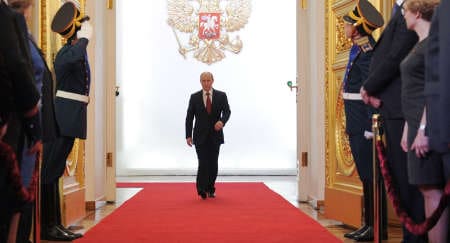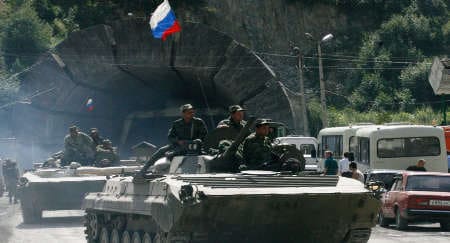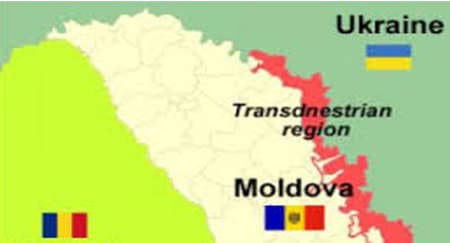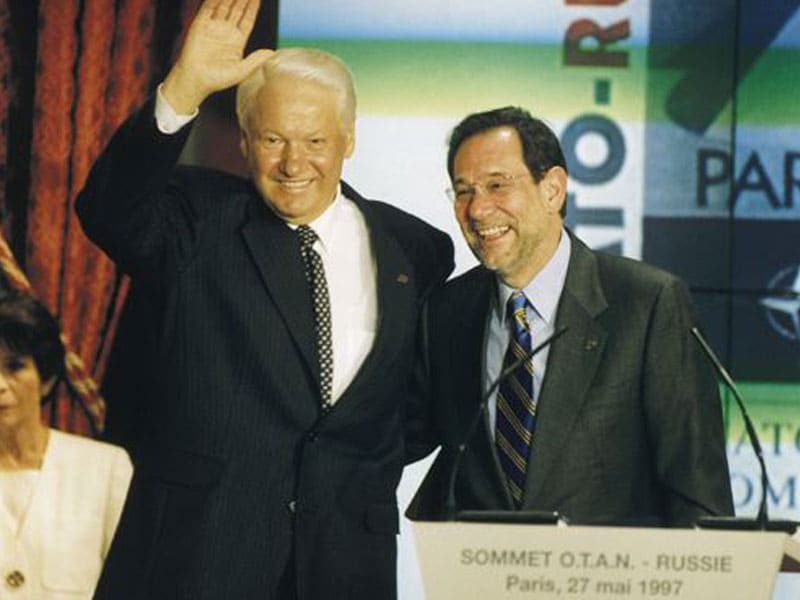The Ukraine crisis and NATO-Russia relations
The Ukraine crisis appears to be a potential turning point in Euro-Atlantic security. Having come as a surprise to many, some senior Western officials and politicians have talked of a changed European security landscape, and that the crisis both creates new security realities for the twenty first century and demands a significant response from NATO.
At the same time, however, the crisis is the crystallisation of a number of wider and longer-term problems that have been increasingly visible for some time, most notably the intensifying sense of strategic dissonance between Russia and the West. Although many have focused on the increasing tensions between the West and Russia since Vladimir Putin returned to the presidency in 2012 and the subsequent failure of a “reset” in US-Russia politics, in fact the relationship – particularly in terms of European security – has been deteriorating for some time.
Indeed, today’s crisis illuminates very clearly the point that Moscow understands European security in very different conceptual terms from the West. Western capitals see the emergence of a Europe ‘whole, free and at peace’, Moscow sees a continent still fragmented, still dominated by bloc mentality (given US influence in European security), and burdened by ongoing conflict.
Where Western capitals see the “open door” policy and the enlargement of organisations such as NATO and the EU contributing to wider European stability, Moscow sees the expansion of these organisations destabilising European security. Where Western leaders have sought to emphasise partnership with Russia, including attempting to develop strategic partnership and the creation of numerous seats at the diplomatic table, Moscow sees itself increasingly isolated, the mechanisms for interaction failing to provide Moscow with a voice.
If Secretary General Rasmussen could state in June, therefore, that NATO has for the last 20 years – until the Ukraine crisis – considered Russia as a partner with whom the Alliance could cooperate, this is denied by senior Russian officials and thinkers who point to NATO enlargement and the ballistic missile defence project as activities that are not those of a partner.
This different understanding has been amplified by the fact that for much of the last 15 years, the West and Russia have drawn very different conclusions about the causes and consequences of the major episodes of the post Cold War era, such as the Colour revolutions in Georgia and Ukraine, the gas crises in 2006 and 2009 and the Russo-Georgia war in 2008. The Ukraine crisis is one more example of this, as the West accuses Russia of aggression against Ukraine and illegally annexing Crimea. Moscow rejects this and asserts that it is responding to a crisis provoked by the US and EU, and is securing its interests against NATO expansion.
At the same time, these disagreements illustrate two important points.
First, it reflects Moscow’s different understanding of the indivisibility of security: Europe is divided into two parts – the wider OSCE space, in which agreements are merely politically binding (and thus open to change or abuse), and the “bloc” spaces of NATO and the EU, in which agreements are legally binding. Second, it reflects Moscow’s belief that the current Euro-Atlantic security structure not only is incapable of effectively addressing existing problems – such as arms control, particularly the Treaty of Conventional Forces in Europe (CFE), and unresolved conflicts, such as Moldova/Transnistria, but generates new ones.
In response, Moscow has increasingly sought to launch its own initiatives to address these problems. In 2003, for instance, it proposed the Kozak Memorandum which suggested a federalised solution to the Transnistria conflict, and in 2008 it launched what became known as the “Medvedev proposals” for a fresh European security debate and new treaty. In the end, the Kozak memorandum was rejected and the Medvedev proposals were channelled into the OSCE Corfu process. Both were viewed in Moscow as being rebuffed by the West not because of their flaws, but because they were Russian initiatives. If Rasmussen has recently stated that NATO must now adapt to Russia seeing it as a threat, therefore, it is perhaps more accurate to suggest that Russia has seen NATO as a potential threat for much longer.
The Ukraine crisis is therefore, in many ways, an additional confirmation of these longer-term problems and disputes. And even if it is resolved soon, numerous points of conceptual and practical tension remain. Indeed, they are being accelerated by the response of both sides to the current crisis, which has emphasised the lack of trust between the West and Russia on one hand –as each accuses the other of both breaking their pledges and providing political and material support for the opposing sides in the conflict in Ukraine itself – while calling on the other to desist from such support and weigh in to resolve the situation.
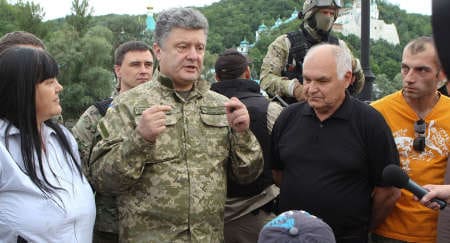
Ukraine's President Petro Poroshenko talks to local residents in the town of Svyatogorsk, June 20, 2014
© REUTERS
The crisis itself, of course, remains very active. Despite President Poroshenko’s proposed 15 point peace plan, the possibility of further deterioration remains distinct. In June, senior NATO officials pointed to a renewed build up of Russian armed forces on the Ukrainian border, indicating it was a “regrettable slip backwards”. This suggests that the Russian leadership seeks to retain the option to intervene in Ukraine further, which would imply deeper Western sanctions against Russia. Furthermore, for its part, Moscow has denied the build up, stating that it is a rotation of forces, while condemning the indiscriminate use of heavy weapons by Ukrainian forces in built up areas in their campaign against the separatists that has led to many civilian casualties and a major increase in refugees.
If a deterioration of the immediate crisis within Ukraine itself cannot be ruled out, with all its potential ramifications of civil war in Europe, the intensification of the wider trend of more systemic dissonance is already evident. Various security aspects of the crisis – such as the infiltration of Crimea, and Russian military exercises and a build up on Ukraine’s border – have unsettled Eastern European members of the Alliance and created a debate in the West about the strength of NATO’s Article Five commitment to defend its members. This has resulted both in enhanced reassurance efforts and the preparation of a Readiness Action Plan. This plan envisages enhancing intelligence and awareness capabilities, more high intensity military exercises, prepositioning equipment and supplies further east and improving the capacity of the NATO Rapid Reaction Force. Furthermore, Barack Obama has proposed a $1 billion package to enhance European security.
Immediate concerns about the Euro-Atlantic architecture are justified – Moscow has long stated its opposition to NATO and its enlargement, and even its desire to attempt to roll back NATO’s influence if the opportunity presents itself. At the same time, these reassurance measures address only certain more conventional military aspects that the Alliance should be considering, such as the capacity of the Russian military, as reflected in the exercises. They may, however, be less effective at addressing other potential types of threats illustrated by the current crisis, and so it may be worth supplementing such measures with a push to complete security sector reforms in new member states.
It is also worth reflecting on what Moscow’s responses to these moves might be – not least since the strengthening of “reassurance” will be seen in Moscow to justify the concerns it already had about the move of NATO infrastructure to Russia’s borders. Indeed, some Russians have already voiced concerns about NATO using the Ukraine crisis as a reason to rethink the terms of the NATO-Russia Founding Act, even changing the balance of power across Europe by though the putative membership of Sweden and Finland, and strengthening its presence in the Black Sea region.
First, it is possible that Moscow will again attempt to advance its proposals both for the resolution of the Transnistria conflict on one hand, and increased attempts to secure more support for a rethink of the European security architecture. Second, Moscow may respond by putting existing arms control arrangements under pressure, perhaps by bolstering its military presence in Kaliningrad and Crimea, or by suspending its participation in (or withdrawing completely from) arms control agreements. Finally, it appears likely that Moscow will continue to hold snap exercises – and a major strategic level exercise, Vostok 2014, is scheduled for September this year. The result of this is likely to be a self-reinforcing cycle of increasing dissonance.
Russia should, therefore, become a serious priority for the Alliance. Beyond questions of well-tailored reassurance, therefore, two points are worth making. First, it is important for policy makers to be aware of the different understandings of post Cold War history – including the details of Russian initiatives such as the Kozak memorandum to the Medvedev security treaty proposals. Second, it is time for a major reassessment of Russia itself. This has proven difficult in the past, since Western states have varying relationships with Russia – with the result that some Western views of Russia are often out-of-date. For NATO this is particularly important: the reforms of the Russian military, for instance since 2008 have clearly had some effect. What are the strengths and weaknesses of the Russian military? What can NATO learn about signals being emitted by Moscow? How can surprises be avoided in future?
Russia is not the USSR, nor is the current tension a “new Cold War”. While there is important tension in the relationship that will not simply fade away – and indeed may re-emerge if the wider aspects are not dealt with – those who see Russia in Cold War terms should remember that those who look back to prepare for the last war usually find themselves at a disadvantage as the future unfolds. Fresh thinking about Russia and how it is changing in the twenty first century, about where the disagreements are and how they might be dealt with, is an inescapable necessity. Although Russia should not be the only subject on the agenda for the NATO Summit in September, the Summit offers a good opportunity to rethink the Alliance’s position.

